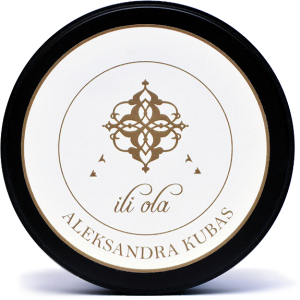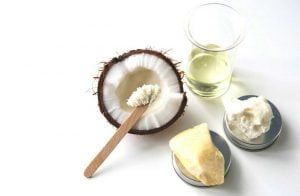Menopause is a natural physiological process which, at some point, will be of concern to all of us women. Apart from poor frame of mind, the skin will look not as good as before. This article is meant to make you more familiar with the problem and show you how to take care of ourselves so that we can all, each of us, feel comfortable and look good. ?
Menopause is a tough process that comes upon most of women after, more or less, five hundred menstruation cycles—at the age of forty-four to fifty-five. It is marked by ceasing sensitivity of the ovaries to the follicle-stimulating hormone (FSH) and the luteinising hormone (LH); as a result, their production of estradiol comes to an end. In consequence, the reproductive period in women is inevitably, and definitely, concluded.
How do sex hormones influence the skin?
Hormones would not have any essential influence on the functioning of living organisms, if not for the presence of receptors. The receptor is tasked with recognising the hormone to be targeted, and subsequently to convey the information comprised in it to the cell nucleus where the decision is made for the cell to take appropriate action, such as intensified or inhibited secretion of certain substances, or intensified cell divisions. One of the sex hormones named estrogen exerts an astonishingly powerful effect on human skin, triggering escalated proliferation of epidermis cells, decelerating the growth of hairs, simulating the cells to synthesise collagen and hyaluronic acid, and diminishing the sebum secreted by the skin.
The influence of progesterone is not fully explored yet; it is assumed that the hormone blocks the estrogen receptors in human skin.
How does menopause impact the organism?
Between the age of 44 and 55, the arteries gradually narrow, which leads to a shrinking of the ovaries and restricted secretion of estrogen – against increased production of FSH and progesterone. As a result, menstruations become irregular, flushing tends to appear; atrophy of the breasts, the vagina and vulva is possible as well. Also the calcium metabolism becomes upset. During the menopause, the required daily dose of calcium may exceed 1,000 mg (the standard dose being 600 mg); this is due to the parallel loss of bone mass, of to 0.5% to 3% per annum. This phenomenon is very dangerous as it may easily lead to osteoporosis caused by lesser bone mass density. However, if in the course of menopause an estrogen therapy is applied, the density of the bones will remain unchanged.
Changes occurring in the skin during menopause
Menopause is primarily accompanied by poorer elasticity and decreased density of the skin. The skin grows more fragile, thinner, less resistant to stretching, and duller.
Something that you would not normally notice on a daily basis but which is of extreme importance for women as far as beauty is concerned is estrogen’s action that limits the impact of testosterone on what you look like (and how you feel about it). Estrogen is namely formed by transformation of testosterone: with the fading activity of the ovaries, the testosterone level goes up, leading to multiple adverse consequences to the female organism. It may cause increased facial hair, growing secretion of sebum and, in effect, acne or seborrhoeic dermatosis (eczema). Another possible occurrence during the menopause is climacteric keratoderma (keratoderma climactericum), which is most cases appears in the form of skin thickening being a hyperplasia of the stratum corneum on the feet soles and hand palms. This often tends to occur in obese women.
How to treat you skin during menopause?
During the menopause, massages are particularly recommendable – especially massage of the face, steam baths, treatments boosting the skin’s firmness, resistance, and elasticity. Many a woman suffer from depression while menopausal. Depression appears as a side effect of vitamin D deficit; hence, apart from supplementing vitamin D, massage is highly recommended as a means to boost your wellbeing. Anti-solar protection is no less important, particularly for women with a phototype 1 skin. Daily skin care procedures are likewise indispensable to keep it properly dense, protected against drying and adverse action of diverse external factors. The skin should be well taken care of after the evening bath. Greasing and nutritive creams should always be applied, possibly shea butter-based (an excellent ingredient of anti-aging cosmetics) and with substances containing essential unsaturated fatty acids (EUFA). One such ingredient is baobab seed oil which takes care about the natural lipid layer of the epidermis, leaving your epidermis softened and smoothed. Both ingredients are contained in our creams—and both preserve their most valuable properties, for the creams are prepared at low temperatures.

You can really alleviate the menopausal symptoms with the help of your endocrinologist and cosmetologist, and with support of your relatives. Follow the opportunity––sand never lose your joy of life!




